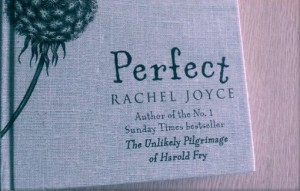


Despite the second storyline eventually tying everything together, its interjections detract from the emotional experience of reading the much more compelling 1972 plot thread. Perfectdidn’t captivate me as much as Rachel Joyce’s earlier book The Unlikely Pilgrimage of Harold Fry did. This story is linked to that of Byron and Diana, and the author brings everything full circle at the end. When he gets a chance at love, he must overcome his fears, and his crippling sense of self, in order to grab at it. Suffering from severe OCD, he leads a restrictive life. Parallel to this story is that of Jim, a middle aged man in the present day.

Her guilt leads her to befriend someone outside her usual social circle, and this in turn sends her life into a horrible tailspin. She seems unaware of the full consequences of the incident at the time, but a strict sense of honour compels Byron to tell his mother the whole story. When Byron notices time shifting, he causes his mother Diana to make a serious, tragic mistake. Twelve year old Byron knows this because his friend James, the smartest boy at school, tells him so.


 0 kommentar(er)
0 kommentar(er)
